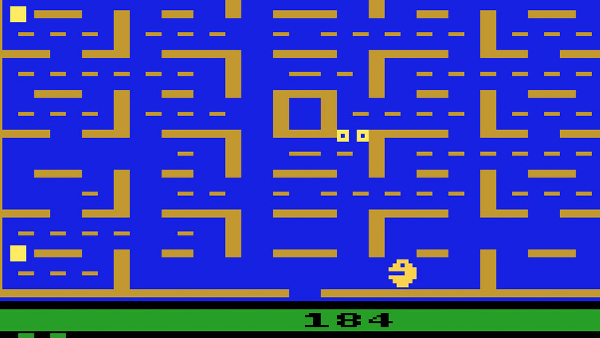7 Times The Video Game Industry Gave In To Greed
7. Atari Operates Without Regard For The Market

After reading countless stories from people who worked for or in partnership with Atari, there’s one thing that seems to be a unanimous thought amongst them, and it's that Atari seemed to have no clue what it was doing.
It was like a coked up behemoth, running rampant and unchecked across a video game market that had no idea of regulation or restraint, and for a while it seemed to thrive in this new Wild West, delivering massive hitting games whilst its Atari 2600 console become the best selling unit on the market. Yet with their success came the desire for more, and soon they gave in to greed so badly that they became one of the root causes of the 1983 video game crash.
While you could point fingers in many directions as to the causes of the calamity, such as over-saturation, lack of publishing control and the rise of third party developers adding even more to the market, which in turn plunged the quality of games released onto consoles, there is nearly always a thread that draws back to Atari.
After all, it was their greed that meant that Activision was birthed, having been formed of developers who were sick of not being paid royalties or given any form of credits on their games, and it was Atari who decided that it would be a brilliant idea to make more copies of a game than there were actual consoles to play it.
The Atari 2600 version of Pac-Man was produced in excess of consoles on the market capable of playing it. Atari’s reasoning was that the game was so popular in arcades that it would help shift another million consoles, which is the type of thinking that seems so utterly backwards that it could have only ever been thought up during an all-night binge.
Worse still, the game was poorly programmed, rushed to release to meet a Christmas holiday window and was denied a testing period to work out any bugs because at this point Atari considered themselves untouchable. They even had the gall to market the game as “a little different” to the arcade, which was their code for, “oh Jesus lads we have absolutely botched this.”
This gaff combined with their equally disastrous release of E.T saw Atari’s stock plummet, the bottom falling out of the entire video game industry dropping from an estimated $3.5 billion down to $100 million, and countless publishers, developers and tech companies left floundering and others buried in the desert alongside unsold copies of E.T.